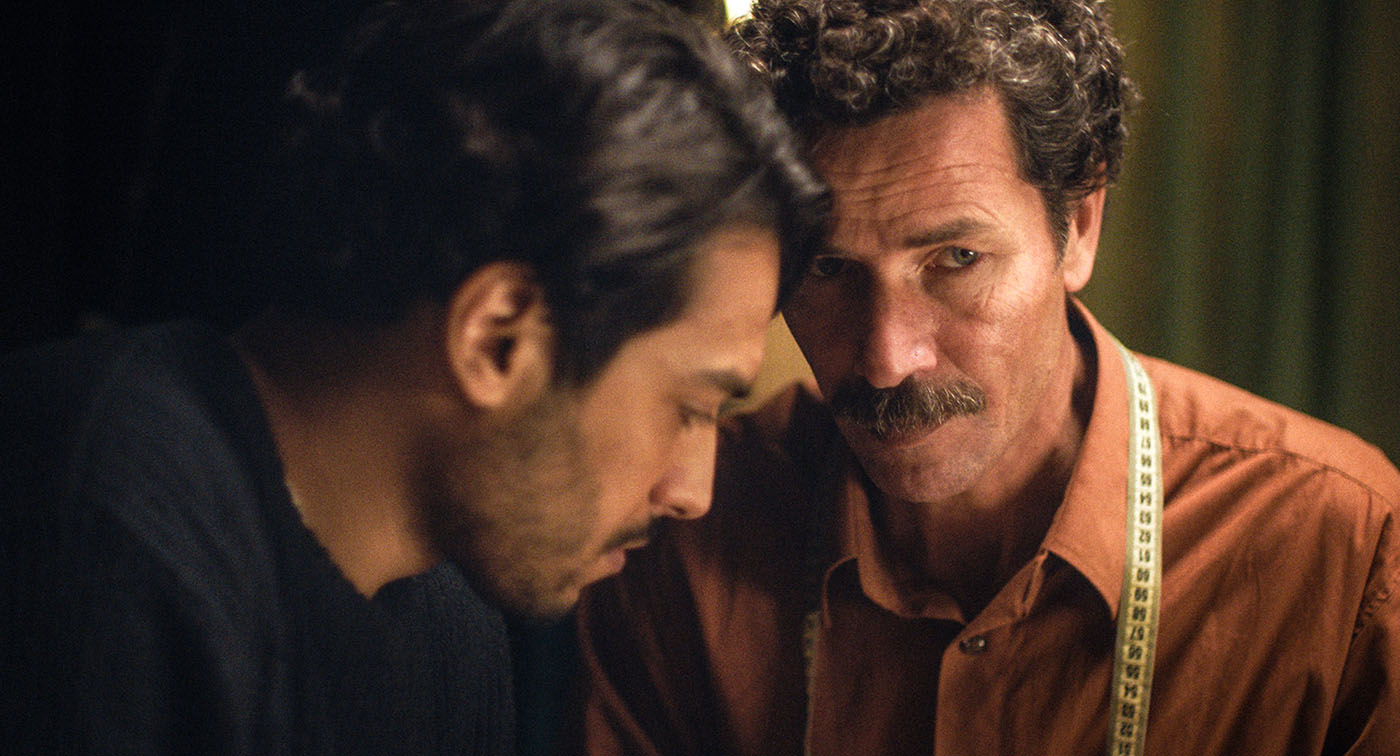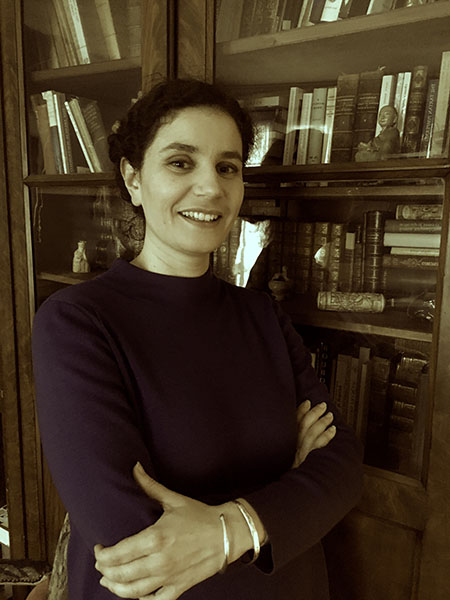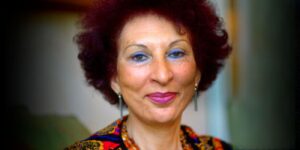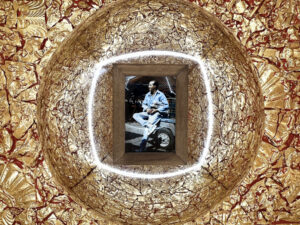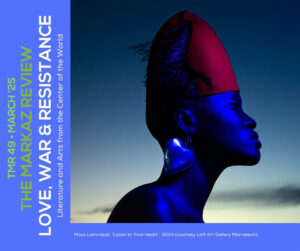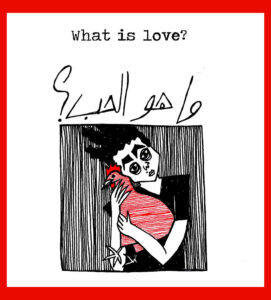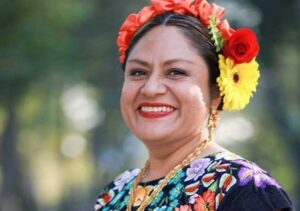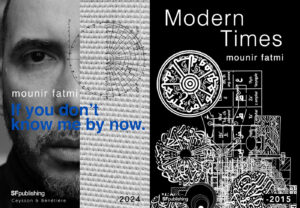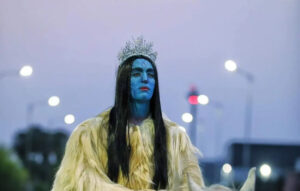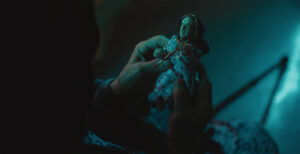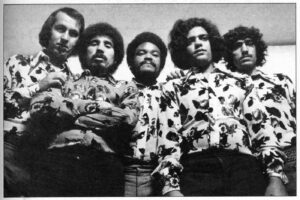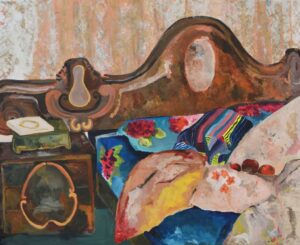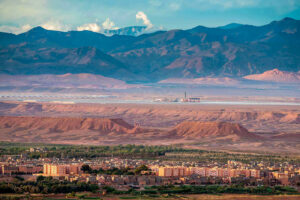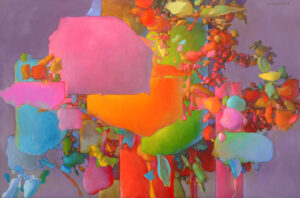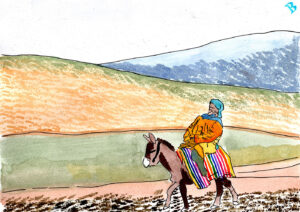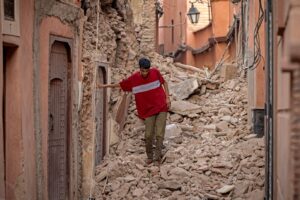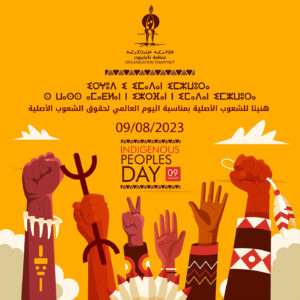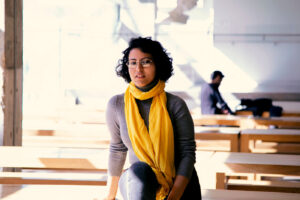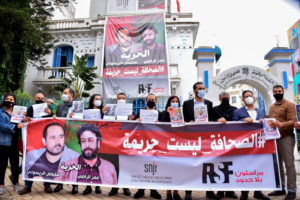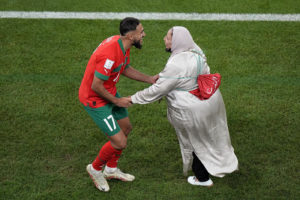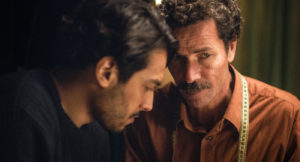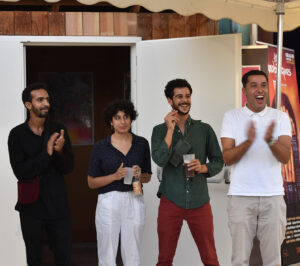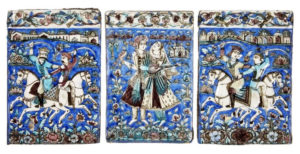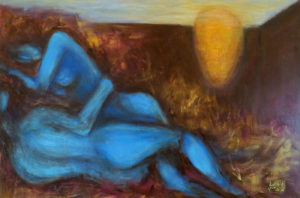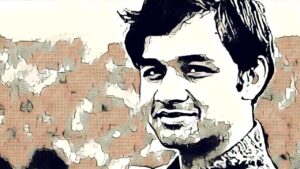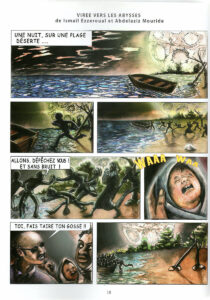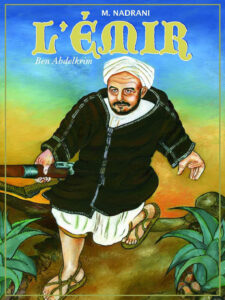The Blue Caftan is playing in Morocco from February 15th, France from March 15th, in Belgium from March 29th, and opens in select US theatres in March.
The Blue Caftan/Le caftan bleu
Directed by Maryam Touzani
A France-Morocco-Belgium production
Producers Nabil Ayouch and Amine Benjelloun
2022/122ms
Melissa Chemam
Maryam Touzani’s second feature film is a rare and winsome representation of unconditional love — love for a partner, for a newcomer and for one’s profession, in this case the silk-weaving and sewing craft of North African celebratory gowns, or caftans. The Blue Caftan effectively reflects on tradition and inevitable change; to represent such strong values, the film team used some incredibly powerful cinematography, with characters who express themselves deeply, with few words and meaningful gazes.
While Touzani’s first feature, Adam (2018), was widely appreciated in festivals, The Blue Caftan won the coveted FIPRESCI Prize in 2022, becoming the first Moroccan film to win this international award. It has since gone on screen in Toronto at the TIFF, at the BFI London Film festival in October, and at the 19th annual Marrakech International Film Festival in November, where it shared the Jury Prize with Cristèle Alves Meira’s Alma Viva. The film was also one of the highlights of the Franco-Arab Film Festival in Paris in November and won the San Francisco Arab Film Festival’s Best Narrative Feature award last month as well.
In The Blue Caftan, Halim and Mina, his wife of over 25 years, own a traditional caftan store in one of Morocco’s oldest medinas, in the town of Salé, near the capital, Rabat. Halim is in fact a maalem, a master kaftan tailor, whose skills have become very rare. Mina runs the business with an iron fist, to defend her husband’s right to exercise his craft without being pressured by contemporary demands or being rushed.
But times have changed, and the competition of industrial tailors is rife. In order to keep up with increasingly demanding customers, Halim and Mina hire a new apprentice, a talented young man named Youssef. Yet Mina is not quite herself these days, and needs more and more rest. As Youssef’s role in their trade grows, Mina can’t help but realize how much her husband is touched by his presence.
The film stars the brilliant Belgian-Moroccan actress Lubna Azabal, in the role of Mina [Azabal was awarded the Premio alla Carriera or Lifetime Achievement Award at the 28th MED Film Festival in Rome in November ’22. ED]. It costars Palestinian actor Saleh Bakri in the role of Halim, with newcomer Ayoub Missioui as Youssef.
Widely praised by critics, The Blue Caftan explores with sensitivity the bond between a husband and a wife who met when they were young, while neither had anyone else to rely on. Yet, Halim’s tragic destiny is that, even though he’s a wonderful, reliable and charitable husband, his needs are not entirely met by his wife. With a bold stand on homosexuality in Morocco, Touzani’s film avoids any sort of moralizing or caricature.
As the director explained to Variety, “In Morocco, homosexuality is illegal and I don’t have words to describe how it makes me feel. As a human being, that’s something I cannot accept.”
In the film’s press notes, she elaborates:
Love is also what one is ready to do for love, and it is Mina who is ready to see that her husband would be happier if he could love and accept himself. Yes, Halim is homosexual, it is part of who he is, his struggles and his suffering, because he lives in a society that does not accept him, but it is above all a question of love. Mina will try to free Halim from his malaise, to make him love and accept himself, to stop living in shame. And what could be more beautiful than to be accepted as you are by the one you love? That Mina understands Halim, supports him, helps him, is for me essential. Mina is a deeply religious woman, yet Mina, Halim and Youssef form a loving trio.
“During the location scouting for my previous film,” Touzani explained, “I met a man in the medina of Salé who ran a hairdressing salon for ladies. I felt something unsaid in his life, something muffled about who he was inside, and who he was trying to be in the face of the world, because of his very conservative environment. I found myself imagining his life. Months passed, and he was still there, resurfacing from time to time in my thoughts.”
The strengths of the film are many, but above all the cinematography by Virginie Surdej is sublime: The colors of the silk, the light and the framing of scenes are pure poetry. Many scenes look almost like paintings. Much of the film takes place indoors, giving the characters an intimacy they crave, in a country where private spaces are often rare. To find himself alone, for instance, Halim can only rely on the hammam. The dialogue is reduced to absolute necessity, leaving the silence between the characters to act as a glue that binds them in true intimacy. The actors express more with their eyes and bodies than a torrent of words could say in such a situation. “For me, it is very important to be able to say things without words,” Touzani notes, “to reduce dialogue to a minimum and I like to convey emotions through looks.”
As the story moves forward, Halim has to produce one of his most complicated pieces, a petrol-blue caftan embroidered by hand with gold threads, that takes him weeks. But while he devotes himself to his craft, he faces fatigue, the sudden deterioration of Mina’s health, and the strong feelings that resurface due to the presence of Youssef. The latter appears to be a surprisingly moral and reliable source of comfort at a particularly difficult time. It’s almost impossible to remain unmoved by the display of such devotion and utter love in the core trio.



